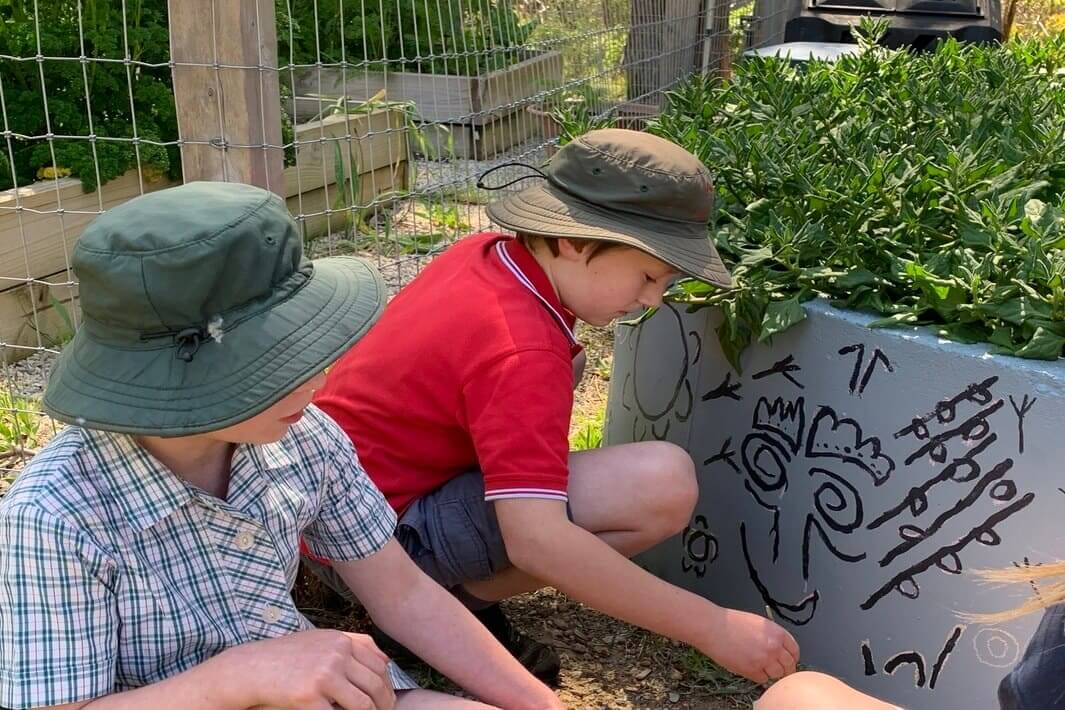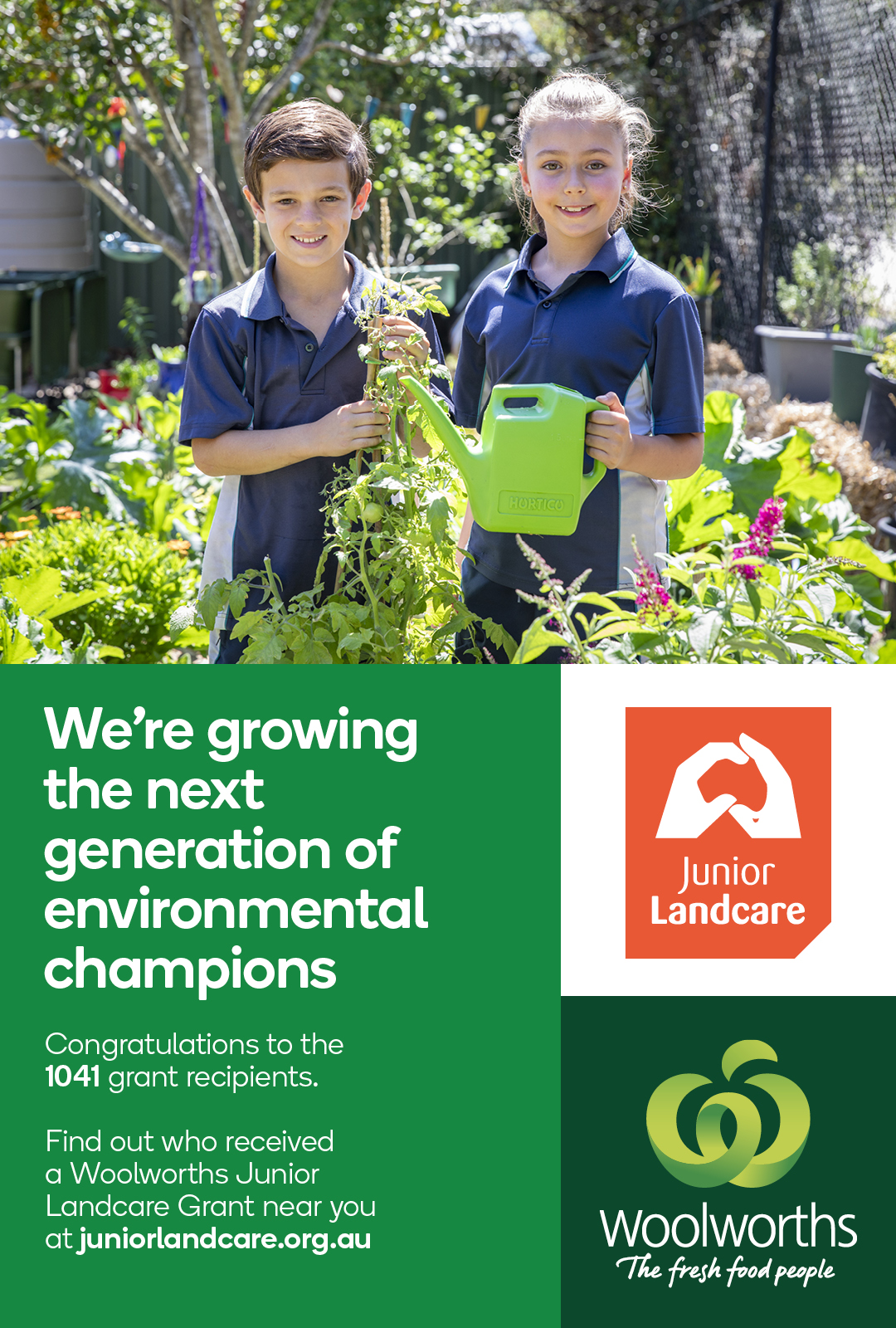CASE STUDY

Age Groups: 7-13
Grant Name: 2023 Woolworths Junior Landcare Grants
School: Heathfield Primary School
Grant Sponsor: Woolworths
Project Overview
Woolworths Junior Landcare grant recipient, Heathfield Primary School in South Australia, embarked on an exciting project to build a bush tucker garden, inviting all students to participate in growing native edible plants. Adding an artistic touch, a mural was painted on the planter tubs, connecting bush food with art. Students planted a variety of bush tucker plants, including Warragal greens, as part of the kitchen garden program. Collaborating with Heathfield High, students enjoyed not only painting the mural on the tubs but also tasted delicious creations cooked with the bush tucker plants. The objective of the project was to provide an inclusive gardening experience, involving children in designing, growing, caring for, and harvesting the produce. The expected outcomes included hands-on learning of the plant life cycle, awareness of First Nations culture through the cultivation of a bush tucker garden, and an appreciation for indigenous edible plants.
Educational Outcomes
Students learned to reduce water use with native plants by monitoring water levels, highlighting the importance of planting water-efficient, edible varieties. They also learnt how to reduce food wastage by identifying edible parts of plants and playing a part in creating a sustainable bush tucker garden.
In collaboration with the local high school and Uncle Tamaru from Deadly Mob, this project built on other garden projects to include a First Nations perspective. The Adelaide Hills bush setting is susceptible to fire, drought, and weed infestation. Students embraced Indigenous sustainable land practices, incorporating them into the selection and planting of bush foods. By adding bush tucker ingredients to their cooking, students explored alternative, eco-friendly food sources and learned how to make informed decisions about what they eat.
The comprehensive education activity included teaching science with student-driven research, plus insights from First Nations Peoples to guide the students in their learning of bush foods, First Nations farming techniques, and land management.
Conclusion
Through Kaurna Culture and language learning, as well as hands-on experience with native bush foods, the students have successfully planted a sustainable bush tucker garden. The hard work of 76 students resulted in the establishment of three garden beds, featuring eight native plants and trees. While the challenge of engaging the entire school was met with constraints due to space, the support from the local high school proved instrumental in bringing this initiative to fruition. The students' enthusiasm was most ignited not only by the completion of the project, but by the joy of seeing their plants flourish and incorporating them into their own cooking. As one student expressed, "My favourite bit was eating the food I made."
 Teachers & Educators
Teachers & Educators Youth or Community Groups
Youth or Community Groups